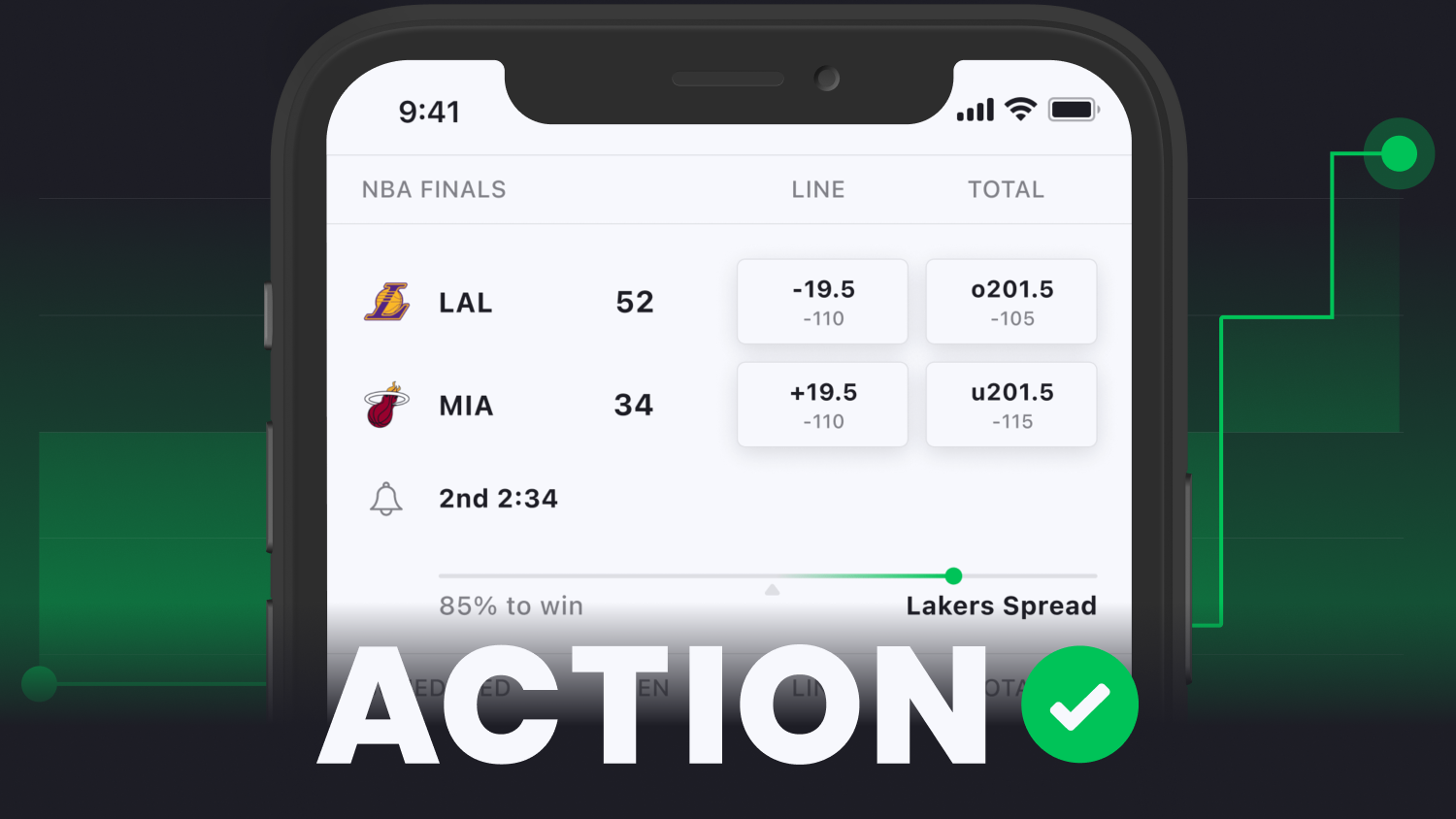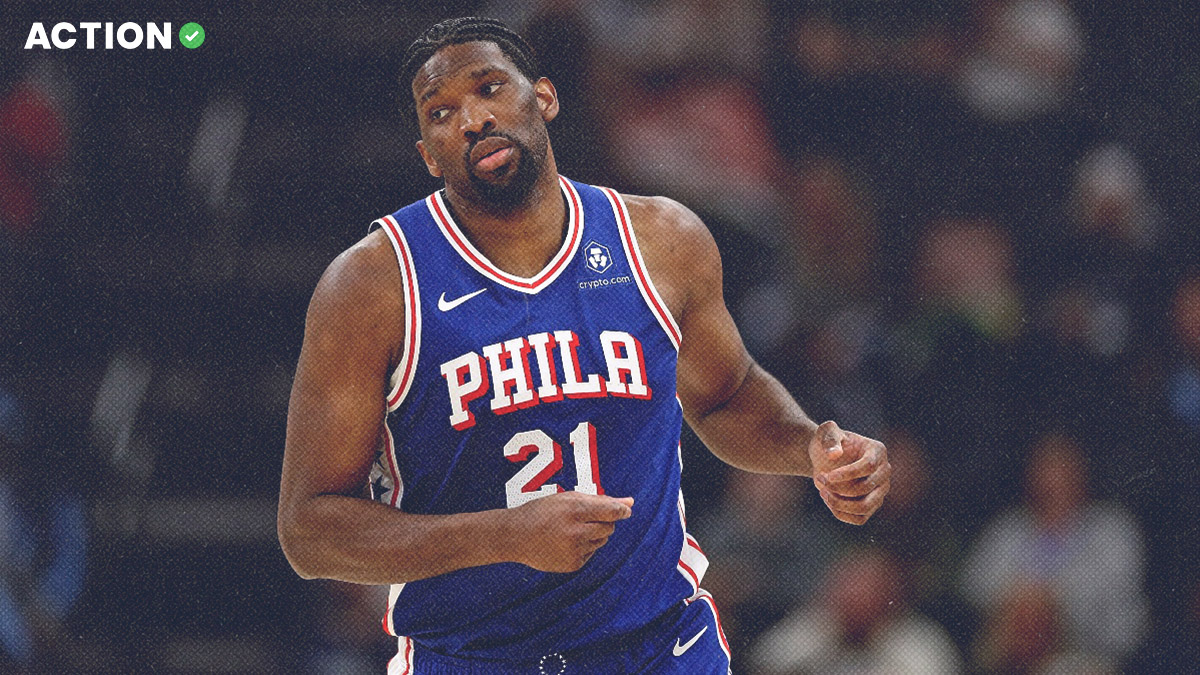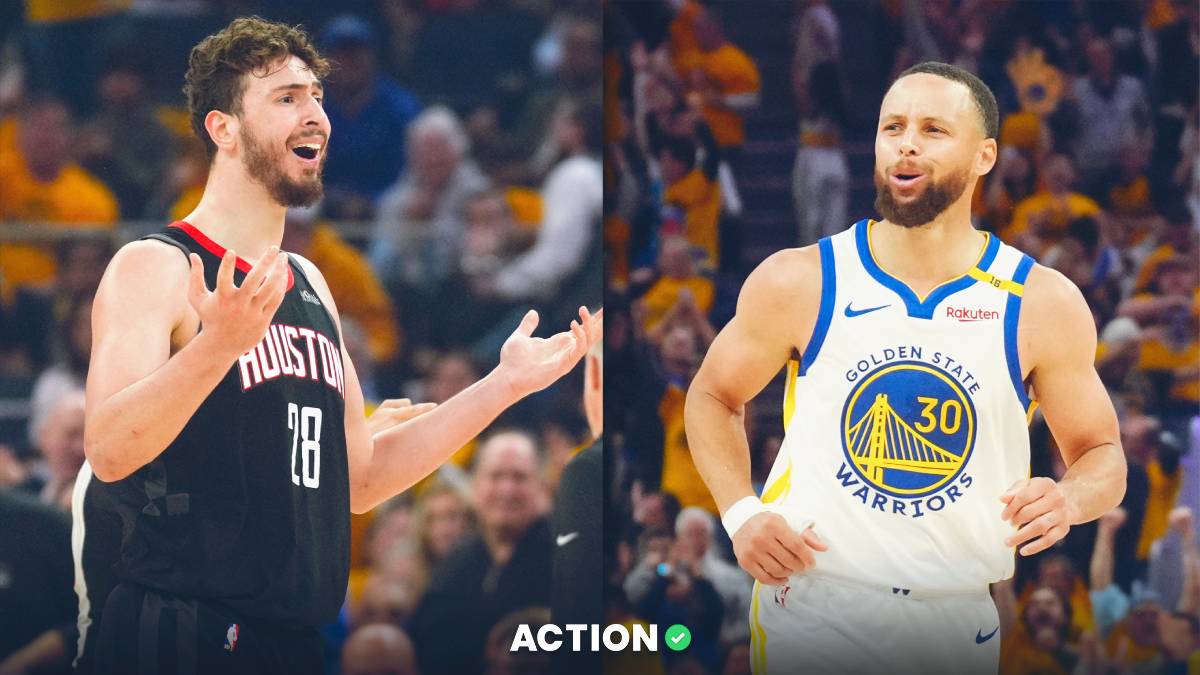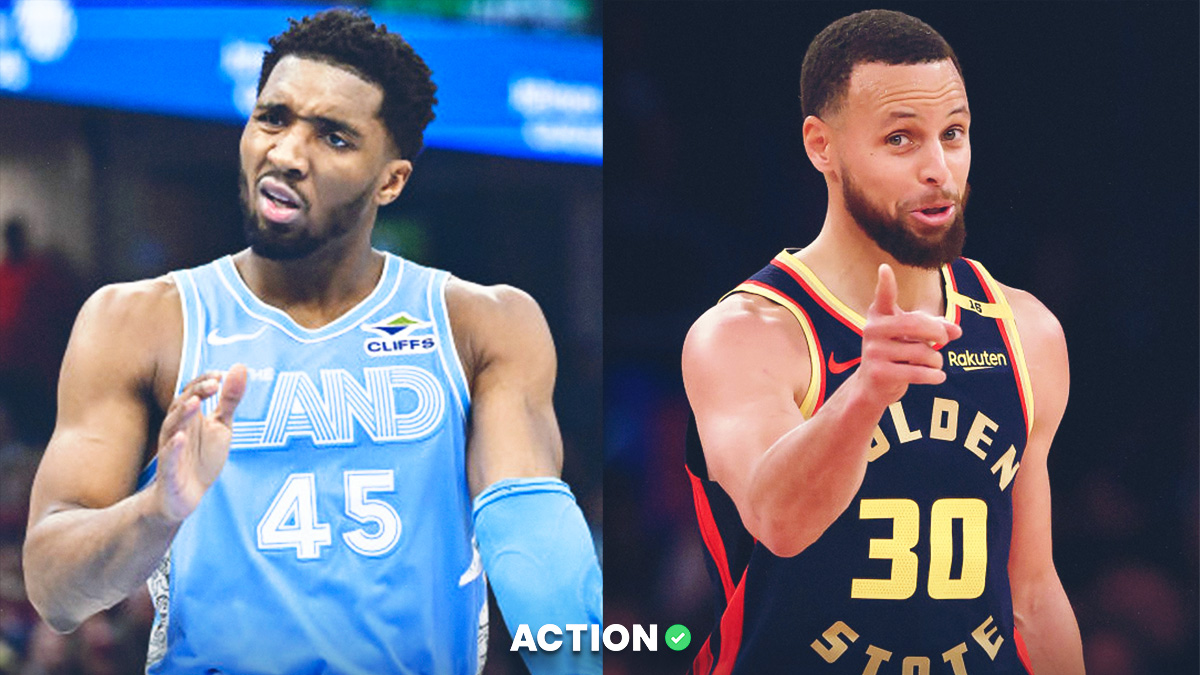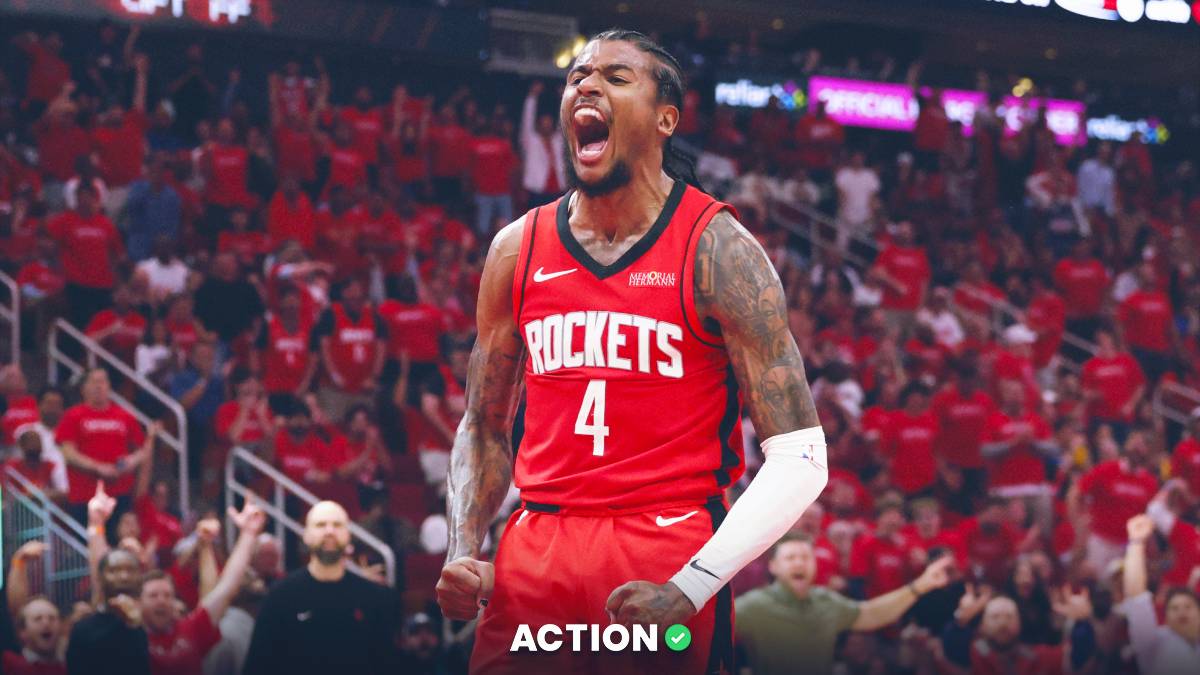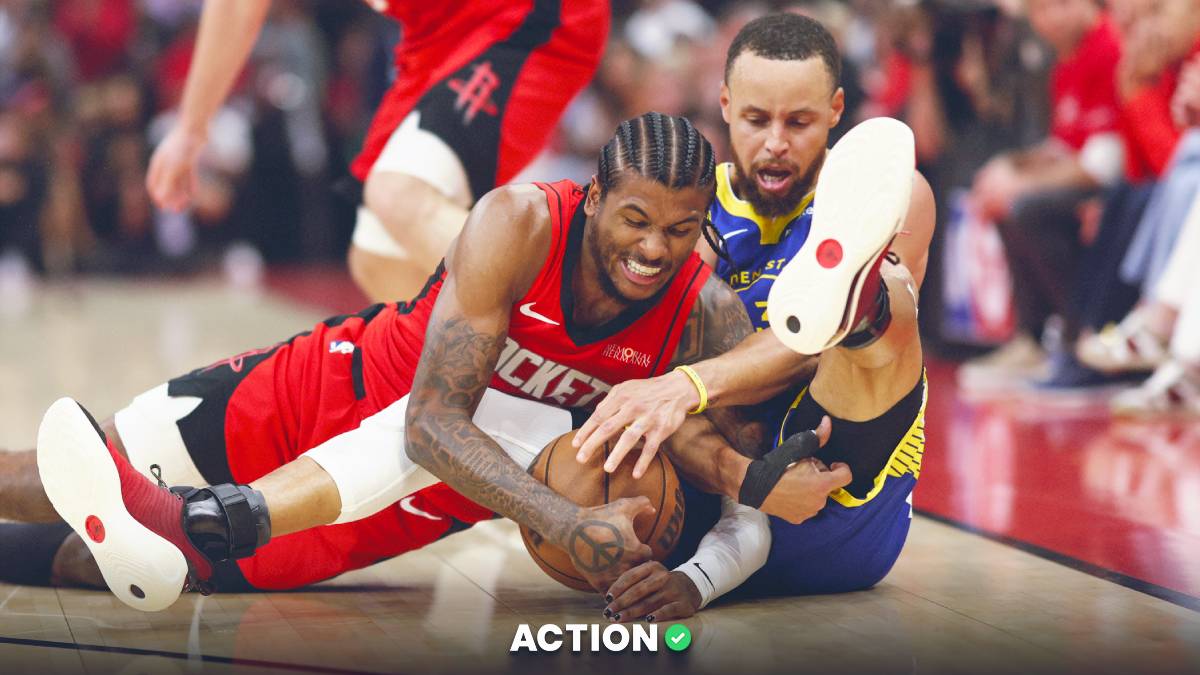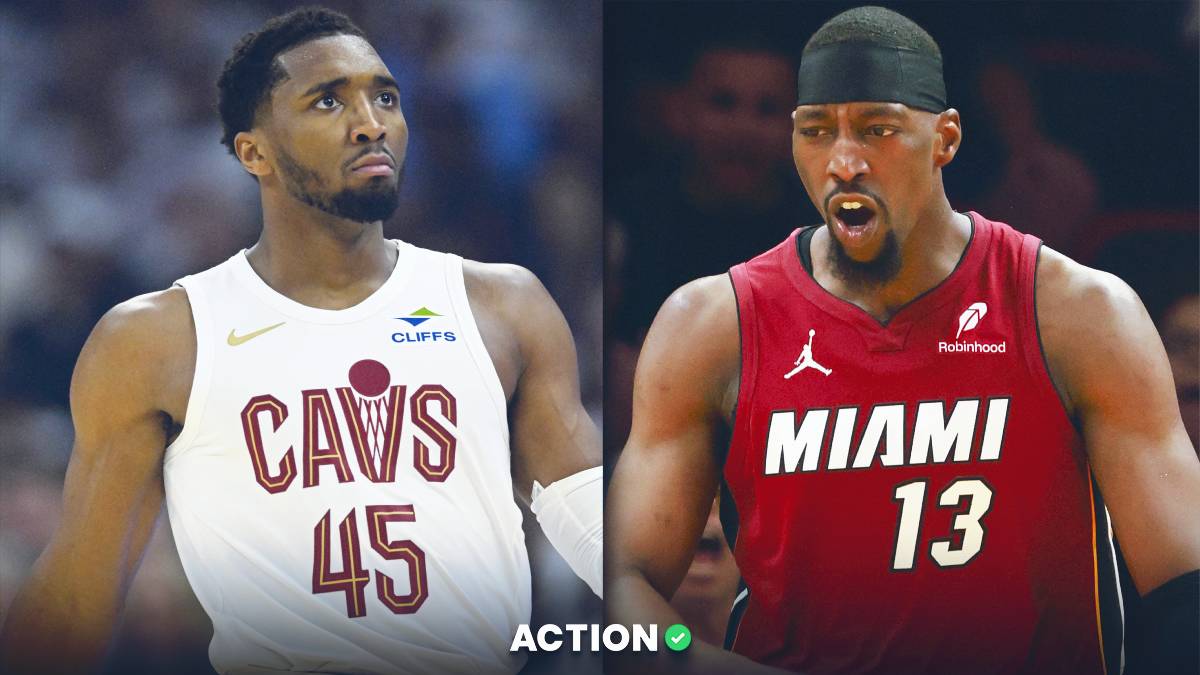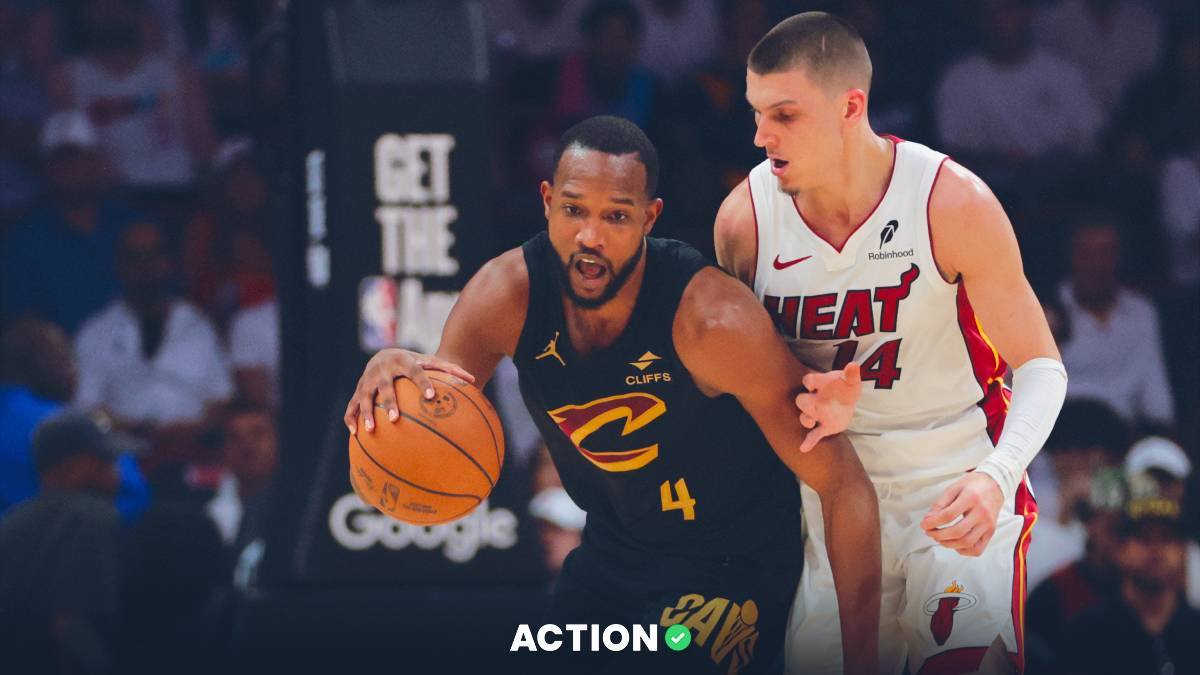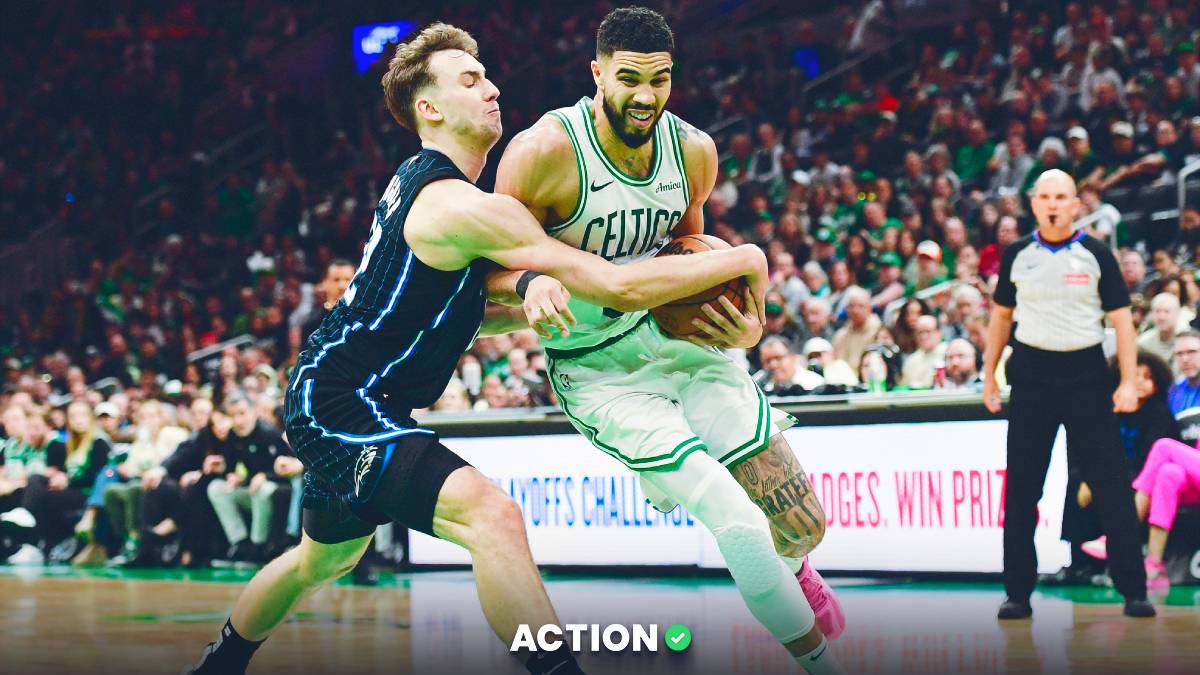The 2023-24 NBA regular season is a wrap, and there's little question the Celtics won the regular season.
The Celtics lapped the field, miles ahead of the rest of the Eastern Conference. Their regular season profile ranks among the greatest in modern NBA history.
Boston finished the season 64-18. The next best East record belonged to the New York Knicks, galaxies behind at 50-32, a 14-game separation in the standings — largest since the ABA merger. The Celtics are as far ahead of the No. 2-seed Bucks as New York is ahead of the 10-seed Atlanta Hawks.
Basketball Reference uses Simple Rating System (SRS) as an overall team measure, factoring in point differential and strength of schedule. The Celtics finished the season at 10.75 SRS, the fifth-best mark in NBA history. The next closest Eastern Conference team this season was the Knicks at 4.36; no one else even finished above three. Boston's +11.7 Net Rating ranks third in NBA history, behind only Michael Jordan's 1996 and '97 Bulls.
The Celtics were a regular season juggernaut, but the postseason is a different animal. So how do juggernauts like Boston fare when they get to the playoffs?
Do they win the conference, and is it as dominant as the regular season? How do juggernauts do when they reach the Finals? And what goes wrong when they fail? Let's let history be our guide.
How 12 Juggernauts Since 1984 Fared in the Postseason
Last season was all about parity and the middle class without a great regular season team, especially in the West. This season is different. This year's Celtics are a Juggernaut.
We'll define "Juggernaut" here as any team that finishes at least 10 games ahead of the entire rest of the conference in the regular season.
The playoffs expanded to eight teams in each conference in 1984, giving us four decades of data. We've had 12 Juggernauts since 1984. Here's what happened to each of those teams once the playoffs began, starting with the most recent.
2015 Warriors: Champions
The Warriors led the West by 11 wins, with a 10.01 SRS near top 10 all-time. This was a year before the 73-9 team, the breakthrough team for MVP Steph Curry, Klay Thompson and Draymond Green. The Clippers were a distant second at 56-25 and a strong 6.8 SRS.
Golden State swept the Pelicans in the first round with a furious comeback Game 3 win. They fell behind the Grizzlies 2-1 in the second round but won the next three. The Rockets pushed them both games in Golden State to start the WCF but lost and went down in five.
Then came the Finals against LeBron James and the Cavs. Like the Memphis series, the Warriors lost Game 2 at home, then went down 2-1 on the road. But then Steve Kerr went small, benching Andrew Bogut for eventual Finals MVP Andre Iguodala — that was that.
The Warriors won three straight to win the title. They never played a Game 7 but did trail 2-1 twice.
2013 Heat: Champions
This was LeBron's one truly great regular season team. The defending champs ripped off 27 consecutive wins in February and March — the second-longest single-season winning streak ever — before finally losing in Chicago. They finished the season 12 wins clear of the Knicks but wouldn't face them in the playoffs.
The Heat swept the Bucks before being shocked in a home Game 1 by the Bulls, but they won the next four to dispatch of Chicago. Then it was a rematch with the Pacers, a team they'd beat 4-2 the previous season. Indiana lost the opener in Miami by one in overtime, then stole the second. The teams went back and forth all series, 1-1, 2-2, 3-3, before the Heat won Game 7 at home.
The Finals against the Spurs were similarly hard fought. San Antonio stole Game 1 on the road, and the series went back and forth, 1-1, 2-2, then another Spurs win. The Heat trailed Game 6 by five with under 30 seconds to go, but a miracle Ray Allen 3 sent the game to overtime. Miami finished the job as fans streamed back in, then won Game 7 to repeat as champions.
2009 Lakers: Champions
The 2008 Lakers fell to the Celtics in the Finals, and Kobe Bryant still hadn't won a ring without Shaquille O'Neal. But a whole season of Pau Gasol and 50 games of Andrew Bynum helped the 65-17 Lakers cruise through the regular season 11 wins clear of the next closest West competitors.
LA beat the Jazz in five, with one road loss by a bucket. Yao Ming and the Rockets were up next, though without the injured Tracy McGrady. The Rockets stole Game 1 on the road, then won Games 4 and 6 to push it to seven, but the Lakers took care of business.
The Lakers got another push in the WCF from Chauncey Billups, Carmelo Anthony and the Nuggets. Denver stole Game 2 on the road to tie it 1-1, then tied it again 2-2, but lost in six. The Lakers were back in the Finals and this time they finished the job, winning in five against Dwight Howard and the Magic.
2006 Pistons: Lost in ECF
The Pistons won the title in 2004, then made it back to the Finals but lost in 2005. This was perhaps their best and most balanced regular season team of that run in which they played in six consecutive ECFs. This team wasn't quite as dominant defensively as the previous two seasons after Larry Brown's retirement but was their best offensive unit, led by new coach Flip Saunders and a huge season from Chauncey Billups, who made his first All-Star team and finished top five in MVP voting.
Detroit went 64-18 and finished 12 games ahead of the Heat, the only other good team in the East. The first round was not close, an easy five-gamer against the Bucks. Up next was the first series in an annual battle with LeBron James and the Cavs. It was LeBron's third season and first playoffs and the Cavs went down 0-2 but then won three in a row and led late before falling in a potential closeout Game 6.
The Pistons won an ugly Game 7 but the series took its toll. Detroit lost Game 1 of the ECF, and its offense never really found its footing against the Heat. Billups, Rip Hamilton and Rasheed Wallace each shot under 40% for the series, and the Pistons had no answer for Dwyane Wade. Detroit won its two remaining home games but lost three times in Miami, and the Heat went on to win the title.
1997 Bulls: Champions
The Bulls technically don't quite qualify as a Juggernaut by our definition. Coming off a 72-10 championship season, Chicago was 68-10 again before punting three of its final four meaningless games. Chicago finished just eight games ahead of the Heat, but the Bulls' 10.70 SRS was fifth best ever at the time and nearly double their closest East competition.
Chicago cruised through the East, sweeping the Wizards, then losing once each to the Hawks and Heat in series that were never competitive. The Finals were the first of two matchups with John Stockton, Karl Malone and the Jazz — and Michael Jordan was not happy Malone had stolen his MVP.
It was a close series, though. The Bulls won Game 1 by two then won the second but lost Games 3 and 4 on the road. That set up one final game in Utah and Jordan had the flu — and you know what happened from there. MJ dropped 38 in his Flu Game and hit the go-ahead shot late, and the Bulls closed out at home in Game 6 for Jordan's fifth ring.
1996 Bulls: Champions
The previous season was Jordan's first full year out of retirement, and the revenge tour was sweet. The Bulls went 72-10, the NBA record until 2016, and had an 11.80 SRS, best of any team in the last 50 years. Even a great Orlando squad coming off the Finals still finished 12 games back.
The East playoffs are barely worth recounting. The Bulls lost a single game, by three in overtime against the Knicks. They swept the Heat, beat the Knicks, then swept the 2-seed Magic in a revenge series. The Seattle SuperSonics waited in the Finals — look 'em up, kids — and Chicago made quick work, going up 3-0 before giving a couple road games away to finish out the title at home.
The Bulls were never threatened and remain the greatest team of the modern NBA era, maybe ever.
1992 Bulls: Champions
Chicago broke through for its first championship in 1991, then ripped off a 67-15 regular season run the following year. The Bulls finished 10 wins ahead of the rest of the league.
Chicago swept a bad Heat squad, but from there it wasn't easy. The Bulls lost a home Game 1 to the Knicks, the first of five playoff meetings in the 90s. They recovered to go up 2-1 but lost two more in New York and needed a rare Jordan Game 7 to close the Knicks out. The Cavs were up next and took Game 2 in Chicago, then pushed the series to 2-2 before the Bulls pulled away to head back to the Finals.
The Blazers series mirrored Cleveland as Chicago split its first two home games a third straight series, then sat tied 2-2 a third time in a row. The Blazers led by 15 late in Chicago in Game 6, but Scottie Pippen led a comeback and Jordan finished the job to help Chicago repeat as champions.
1987 Lakers: Champions
The Lakers had already won three titles in the 80s and played in two more Finals but were coming off a disappointing 1986 playoff exit. Kareem Abdul-Jabbar turned 40 by the playoffs, but Magic Johnson was an MVP in his prime. The Lakers won 65 games, 10 more than the Mavs and 21 more than all but two West teams.
LA made quick work of the West. The Lakers swept the Nuggets, then went up 3-0 on the Warriors before giving a game away. It was their only West loss as LA finished Golden State off, then swept the sub-.500 Sonics as the Lakers never faced a West opponent better than 42-40.
That meant a Finals against the defending champion Celtics. The Lakers won two at home before heading to Boston. The Celtics won two of three to protect home court, but a legendary Magic hook shot helped LA win Game 4 by one, and the Lakers closed out the championship at home in Game 6.
The Lakers never trailed or were even tied in any series, and revenge was theirs.
1986 Lakers: Lost in WCF
The Lakers were almost as dominant the previous year — in the regular season. They lapped the West at 62-20, 11 wins ahead of the Rockets, and certainly looked headed for an epic Lakers-Celtics Finals in the only season this era featuring two Juggernauts, one in each conference.
LA swept the 35-47 Spurs but then showed cracks in the veneer as it lost twice in Dallas to fall to 2-2. The Lakers gritted out a close one and put Dallas away, then looked like they'd righted the ship with a big home Game 1 victory over the Rockets.
But Houston had built its team around Hakeem Olajuwon and Ralph Sampson, and its physicality was the perfect elixir against the Lakers. The 23-year-old Olajuwon had a monster series on both ends, putting up 31 and 11 and holding Abdul-Jabbar to under 50% from the field. The Rockets won the next four straight to stun the Lakers 4-1.
1986 Celtics: Champions
The '86 Celtics are considered one of the best teams in NBA history. Larry Bird won a third consecutive MVP and Boston went a sparkling 40-1 at home and came one win short of the franchise's all-time record. The Celtics had 10 wins more than the 2-seed Bucks, though they barely edged Milwaukee out in SRS.
The Celtics swept the Bulls in round one, though not before "God disguised as Michael Jordan" dropped a playoff-record 63 points in Boston in double overtime. The Hawks were no match either, losing in five, and the Celtics swept that strong Bucks team in the ECF.
The Finals were a bit of a letdown with the Lakers already dispatched, but there was still a title to be won. Houston performed admirably, winning twice at home, but Boston finished the playoffs 10-0 at home and completed the title in six without ever really being threatened.
1985 Lakers: Champions
The Lakers lost Game 7 in the Finals against the Celtics the previous season and were determined to get back on top. They won 62 games, 10 more than the Nuggets, the only competition even close.
The West didn't put up much of a fight. The Lakers swept the Suns, then beat the Blazers in five. The Nuggets did steal a road Game 2, but LA rebounded to beat them in five to earn its rematch with the Celtics.
Game 1 came on the road, since Boston won 63 games, and it was a Memorial Day Massacre. The Lakers were embarrassed 148-114, and it looked like the Celtics might just have their number. But LA responded, ramping up its defense on Bird and winning four of the next five, the lone loss on a buzzer beater by Dennis Johnson.
The Lakers won Game 6 in Boston and celebrated their championship on the road, their first ever Finals win over the Celtics. LA was only ever really threatened in that one embarrassing Game 1 Finals loss.
1984 Celtics: Champions
Larry Bird won his first MVP, and the Celtics flew through the East at 62-20. Boston had won the title in 1981 and was eager to add to its count. The defending champion 76ers were 10 games off the pace but disappointed thanks to a lackluster season from defending back-to-back MVP Moses Malone.
The Celtics beat Washington 3-1 in the first round, though all four games were close. A red-hot Bernard King and the Knicks won all three games in New York in round two, but Boston defended home court and survived in seven. The Celtics made much quicker work of the Bucks in the ECF, an opponent that never quite matched up with Boston.
That meant another Finals against the Lakers, with Boston clear favorites after LA had lost third-leading scorer Jamaal Wilkes in the WCF. It was a classic Finals. The Lakers stole Game 1 the Garden, then lost in overtime. Games 3 and 4 repeated the feat in LA, with the Lakers going up 2-1, then losing in overtime in a Game 4 that featured Kevin McHale clotheslining Kurt Rambis to restore Boston's physical edge.
Boston won Game 5 back in the Garden in the Heat Game, but the Lakers tied the series up a third time to send it to Game 7. There the Lakers cut a 14-point deficit to three with one minute left, but the Celtics held on and celebrated their first championship at home since 1966.
Juggernaut Conclusions and How to Bet the Celtics in 2024
1. Ten of the 12 Juggernauts won their conference and made the Finals.
That's an 83% success rate, an implied -500 by betting odds, and it's far better than the typical success rate for 1-seeds, with 89 of 154 (57.8%) 1-seeds advancing to the Finals historically. Teams that dominate the conference all season are historically just as dominant in their conference's playoffs.
The only two Juggernauts that missed the Finals — the 2006 Pistons and 1986 Lakers — still advanced to the Conference Finals, where they each lost to the No. 2 seed and clear second-best team in the conference. These Juggernauts are rarely getting upset, and when they do, it's against a worthy opponent.
2. But it wasn't necessarily easy.
Only five of the 10 Juggernaut conference champions coasted to the Finals: '85 Lakers, '86 Celtics, '87 Lakers, '96 Bulls and '97 Bulls. That's just half of the teams that won, and under half when you include the two that lost.
We've only had four Juggernauts since the Jordan era, and not one of them coasted through the conference en route to the Finals. History says Boston is a deserving favorite to win the East but that there will likely be adversity.
The Celtics look a worthwhile East investment at -175, but there will likely be a better time to buy Boston futures.
3. The Juggernauts that won the conference also won the Finals — every single time.
Ten of our 12 Juggernauts won the conference, and all 10 went on to win the Finals. That's a 100% success rate in the Finals, for those of you scoring at home.
It wasn't always easy. Only four of the 10 winners didn't face any real Finals adversity, and only the '86 Celtics and '96 Bulls from our list of Juggernauts played the entire playoffs without really being pushed.
But they got the job done. History suggests the Celtics will be pushed along the way and likely again in the Finals, but that they should be heavy favorites. A whopping 83% of all Juggernauts won the title. That would imply -500 odds, and Boston is listed at +175 to win the title, potentially leaving serious value on the Celtics.
4. The Juggernauts were typically led by an all-time legendary NBA great.
There's a reason these teams were so familiar. Just look at the headlining superstar on each of our 12 Juggernauts: Bird, Magic, Bird, Magic, Magic, MJ, MJ, MJ, Billups, Kobe, LeBron, Steph. It's a list of Hall of Famers, all undisputed top-20 all-time greats other than Billups.
So that remains the question with Boston. Where does Jayson Tatum fall on that list? Well, he's definitely not peak Jordan, Bird, Magic or Steph, so that leaves two options, per Basketball Reference:
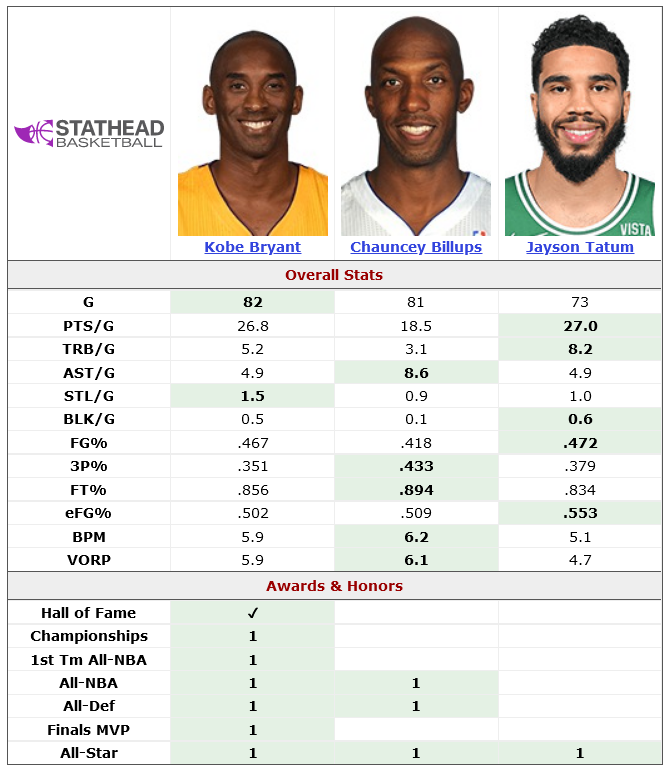
Many readers will probably feel these three names are each in different universes, but the advanced metrics paint the three as similar value players — and Billups notably the best from that year.
The Pistons comp for this Celtics team is an interesting one — a rounded team, typically more defensive, with a better offense this season in the midst of a multi-season playoff run, but also a team without a typical lead superstar, and a worse coach than the guy earlier in this run.
Of course, that's the one recent Juggernaut to fall short of the NBA Finals, when they ran into a superstar better than anyone they had in Dwyane Wade. Could that be Giannis Antetokounmpo? Maybe Joel Embiid?
Celtics fans will cringe at the Lakers comparison, though Tatum would cherish the Kobe comp. Those Lakers struggled a little getting to the Finals but lucked into a more beatable opponent there with both the '09 Celtics and Cavs being upset by an inferior Magic squad.
Could that be the path for Boston? The West has a bunch of good teams that could beat each other up, leaving the Celtics from the weaker conference facing perhaps not the best from the West.
How to Bet the Celtics in 2024
If you're a set-it-and-forget-it bettor that just wants one futures ticket, history suggests the Celtics should be very strong favorites to win the East and then take the title. Juggernauts with this strong a regular season usually finish the job, and history thinks Boston's -175 East odds and +175 title odds are bargains.
If you're willing to wait, though, history overwhelmingly suggests this will not necessarily be easy for Boston. All but two teams on the list — arguably the top two champions in four decades — faced real adversity in a series, trailed or even went to Game 7. There will likely be a better price if you wait to bet on Boston, though history says to hold your ground and stick with the Juggernaut even when things feel queasy.
If you do prefer an underdog, history is not on the side of a long shot. All 12 Juggernauts made at least the Conference Finals, and the only two that didn't win the championship lost to the clear second-best team in the conference led by an MVP-caliber top-25 all-time guy.
Don't get cute and pick a team like the Pacers or Magic to upset Boston. If you believe in an upset, it might take a superstar performance from someone like Giannis, Embiid or Nikola Jokić to take them down.



